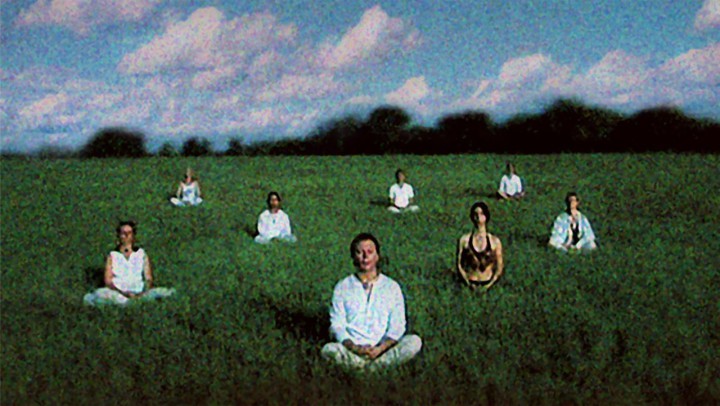 Faith is a powerful thing. It is at once the pinnacle of human endeavor and one of the most dangerous weapons mankind has at its disposal. Countless lives have been lost or destroyed as a result of misplaced faith, both at the hands of the world’s major religions and its smaller, more obscure spiritual movements. Few films have exposed the double-edged sword of faith as explicitly as Holy Hell, largely because few filmmakers have had the level of access to the rise and fall of a spiritual movement afforded to documentarian Will Allen.
Faith is a powerful thing. It is at once the pinnacle of human endeavor and one of the most dangerous weapons mankind has at its disposal. Countless lives have been lost or destroyed as a result of misplaced faith, both at the hands of the world’s major religions and its smaller, more obscure spiritual movements. Few films have exposed the double-edged sword of faith as explicitly as Holy Hell, largely because few filmmakers have had the level of access to the rise and fall of a spiritual movement afforded to documentarian Will Allen.
Holy Hell is a remarkably personal film, in the most literal sense of that term. Shot by Allen over the course of 22 years as the de facto videographer of the Buddhafield, this work documents the filmmaker’s involvement in what initially appeared to be a benign spiritual movement, but turned out to be a cult of the most malignant nature. The key to the success of Holy Hell is that you know how it’s going to end before it begins, but it still manages to surprise and terrify.
The halcyon early days of the Buddhafield look almost utopian through Allen’s camera, a group of statuesque people building a community dedicated to spiritual work under the guidance of a benevolent and charismatic guru, the enigmatic “Michel.” I watched this film expecting the other shoe to drop, and eventually it does so violently, but for the first 45 minutes, I found myself thinking, “Hey, that doesn’t look so bad.” But as is the case with most cults, the truth was far worse than anyone imagined.
Beneath the facade of adoptive family and spiritual enlightenment was a single twisted individual, a speedo-clad out-of-work actor with megalomaniacal leanings and a passing understanding of hypnosis. Michel, later known as Andreas, was born Jaime Gomez, and what he was able to accomplish through a narcissistic drive for self-aggrandizement is nothing short of staggering. At the cult’s height, Michel was able to amass over 100 followers, bend them to his will and dominate every aspect of their lives. By the time the documentary reveals the true extent of Michel’s callous depravity, it’s not the systematic rape or the forced abortions that shock the audience, but how easy it all seems to have been for the bastard to get away with.
If the film is technically and stylistically uneven, it’s due to the fact that Allen’s point-of-view camera work develops over the course of the movie, following his maturation as a filmmaker over two decades. Once it becomes clear how much he was suffering during the course of filming, that he was able to carry on at all is nothing short of astounding. But because of his courage and tenacity, Allen has been able to give the world a gift of tremendous value, a truly unique account of the perils inherent in giving oneself over to something greater. And yet, none of this comes across as a diatribe against religion or spirituality, but rather as a cautionary tale. One doesn’t get the sense that the former members of the Buddhafield have become uniformly disenchanted with notions of a higher power, but that their trials have granted them a wisdom that could not have been achieved through faith alone.
Perhaps the most chilling aspect of the story that Allen reveals is how utterly sane and normal the Buddhafield’s adherents actually are. These rational, intelligent men and women all found themselves in an untenable situation through their pursuit of very relatable goals: a desire to fulfill the basic human need for meaning, belonging and a sense of some greater purpose. It is the virtue of faith to help meet those needs, but this capacity carries an implicit danger for abuse. The old adage, “There, but for the grace of God, go I” has never seemed quite so menacing. Not Rated
Opens Friday, August 12 at Grail Moviehouse



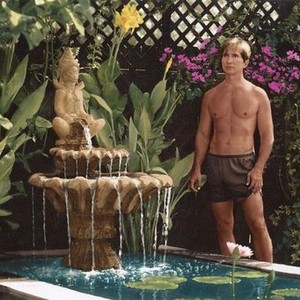
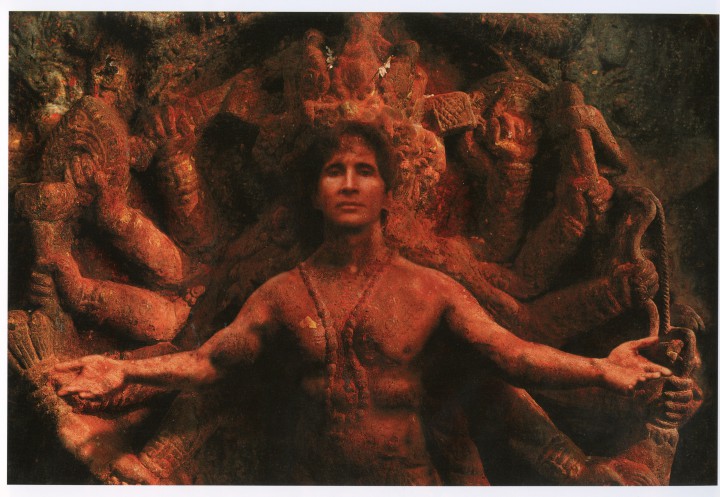
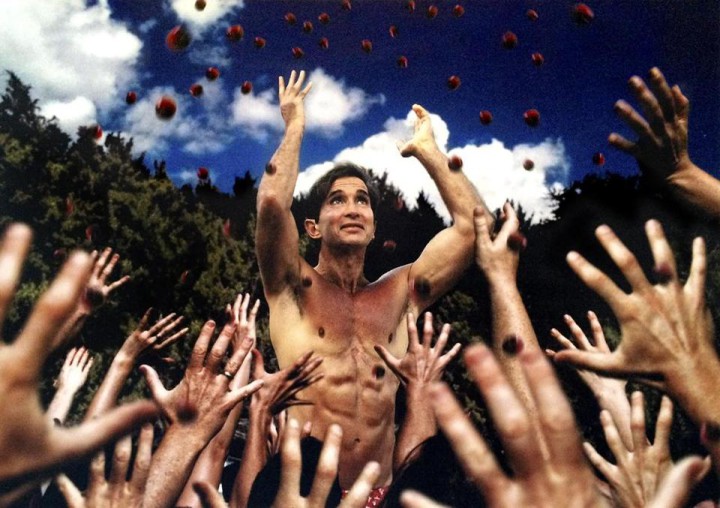
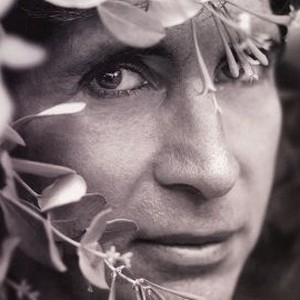
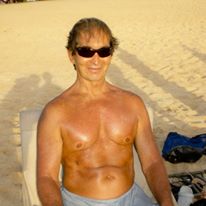
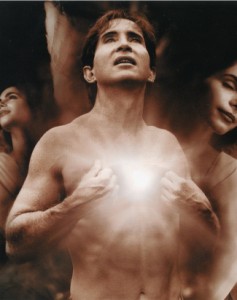
Extremely well written article.
“If the film is technically and stylistically uneven, it’s due to the fact that Allen’s point-of-view camera work develops over the course of the movie, following his maturation as a filmmaker over two decades.”
Technology also plays a factor. When he started filming in 1985, the beginning filmmaker’s tools of the trade were bulky and grainy 8mm and VHS. I think his end product, considering those limitations, is nothing short of astounding.
If I have any criticism of this film (and it is so minor that I almost feel petty to mention it) it would be that the Buddhafield is initially portrayed as “Michel” single-handedly entrancing all of his followers into equal thrall, when later comments reveal that there was in fact a a hierarchy which provided both support and abuse. If this were not a finished product, the only suggestions that I would make would be to discuss the hierarchy of the group more in the beginning in order to dispel any misunderstanding that “Michel” could have created this nightmare all by himself.
So, petty nitpicking aside, I found this film to be very well edited and produced, and I am glad Allen overcame his concerns (as expressed by Q&A guest Phillipe Coquet) about making this his debut film. It is a great start.
I love this article. I wish I can watch this movie in India.
I believe CNN plans to play this at 9pm and 11pm on September 1st if you’re able to get CNN where you are.